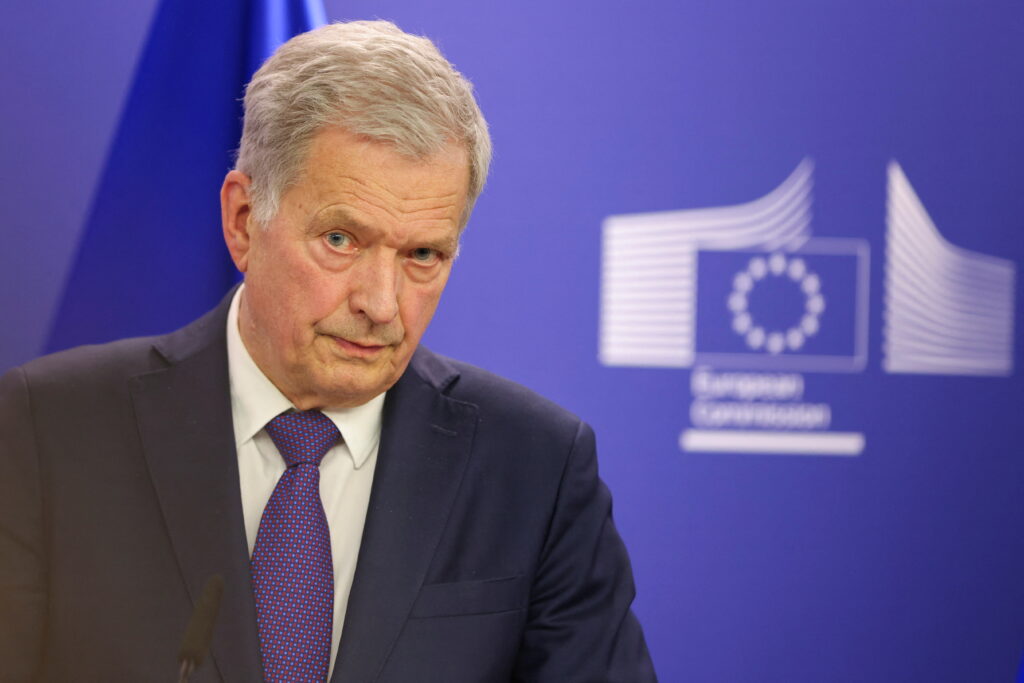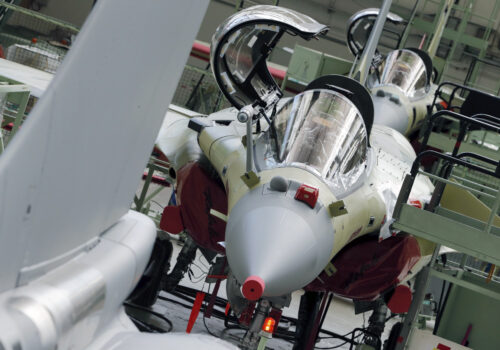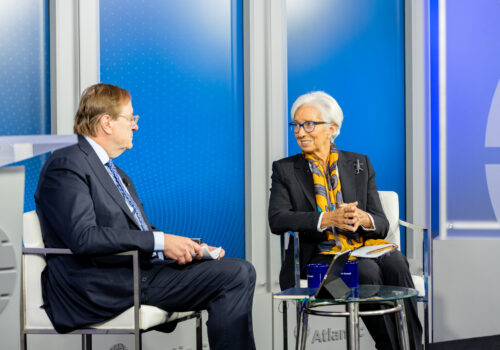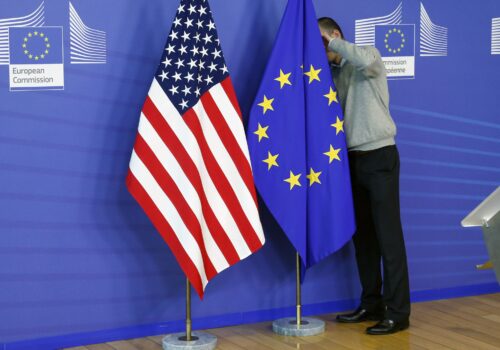Europe has seen report after report on how to bolster its defenses and enhance its readiness in an increasingly unpredictable world. The most recent of these comes from Sauli Niinistö, the former president of Finland and now a special adviser to the president of the European Commission. Published on October 30, this report, alongside others like the much-discussed Mario Draghi paper on European competitiveness, lays out a number of familiar, albeit urgent, calls for action. Will it be different this time? Will Europe follow through on these recommendations?
A push for real intelligence sharing
Notably, one of Niinistö’s top recommendations goes a step beyond usual European diplomatic rhetoric: the creation of a unified European Union (EU) intelligence service. “As a long-term objective, the EU should have a fully-fledged intelligence cooperation service, serving all EU institutions and Member States,” he writes in the report. However, he goes on to note that its aim “should not be to emulate the tasks of Member States’ national foreign intelligence and domestic security services, nor to interfere with their prerogative on national security.”
Instead, Niinistö suggests strengthening the EU’s Single Intelligence Analysis Capacity, which includes both the EU Intelligence and Situation Centre and EU military intelligence within the EU Military Staff under the European External Action Service, the diplomatic service of the EU. Both entities operate under the EU High Representative for Foreign Affairs, and former Estonian Prime Minister Kaja Kallas is the designate for this position. This framework should serve as an official channel for intelligence exchange among the EU’s intelligence services. The need for such a channel was made clear following Russia’s full-scale invasion of Ukraine in 2022 and China’s pledge of a “no limits” relationship with Russia, which underscored how ill unprepared the EU was for the emerging challenges posed by Moscow and Beijing.
In practice, this would mean deeper, more structured cooperation among member states to share intelligence and respond faster to hybrid threats, such as cyberattacks and disinformation campaigns. This recommendation acknowledges the reality that Europe’s security challenges demand something stronger than piecemeal national efforts or ad hoc alliances, as the hybrid attack on the Finnish, Polish, Lithuanian, Latvian, and Estonian borders made clear.
Many Russian and Chinese diplomats have been expelled from European capitals due to espionage allegations, while Brussels, home to numerous institutions and embassies, has become a hub for covert activities. The war in Ukraine has further fueled instability within the EU, with incidents ranging from drones surveilling military training areas and assassination plots against arms industry executives to sabotage. Western nations already collaborate on intelligence through the Five Eyes alliance, which links the agencies of the United States, United Kingdom, Australia, Canada, and New Zealand. Niinistö emphasized that any EU intelligence body should focus on leveraging and effectively utilizing existing intelligence.
More civil-military coordination
Another standout from the report is Niinistö’s call for a European Civil Defence Mechanism to bridge the gap between military and civilian responses. The war in Ukraine has shown that keeping essential services running during conflict is just as crucial as maintaining military strength.
The report points out that Europe needs to move past its fragmented approach and ensure that when a crisis hits, military and civilian authorities are coordinated. This isn’t just theory; it’s the kind of readiness that can save lives and stabilize societies.
Public-private partnerships
The COVID-19 pandemic was a crash course in why private sector involvement is indispensable in a crisis. During the pandemic, partnerships with private companies were essential for vaccine development and distribution.
In his report, Niinistö argues that these lessons need to be expanded to broader crisis preparedness. This means developing clear rules for public-private cooperation, especially in industries vital for crisis response such as energy, medicine, and transportation.
Stockpiles and supply chains
Europe’s supply chain issues during recent crises exposed a major weakness. In response, Niinistö calls for a comprehensive EU-level stockpiling strategy to prevent future shortages.
Coordinating reserves across public and private sectors can buffer against disruptions, whether they come from geopolitical tensions or natural disasters. An EU-wide stockpiling strategy is practical, overdue, and aligns with similar calls in Draghi’s economic competitiveness report.
Getting citizens on board
Preparedness isn’t just a government affair; it’s a societal effort. Currently, only 32 percent of Europeans indicate that they would be willing to defend their country if it were involved in a war.
The Niinistö report stresses that Europeans need to be informed, engaged, and prepared at a personal level. Encouraging citizens to take an active role, from learning basic crisis management to preparing for power outages, is part of a realistic resilience plan.
Another report, but what next?
Reports like Niinistö’s and Draghi’s outline clear paths forward, but their effectiveness depends on political will and follow-through. In Niinistö’s report, the ambitions are clearly outlined: intelligence cooperation, military-civil readiness, and crisis preparedness. Niinistö’s report will contribute to the agenda of European Commission President Ursula von der Leyen’s upcoming term, during which the EU is set to appoint its first defense commissioner (former Lithuanian Prime Minister Andrius Kubilius). This new role will include the responsibility of preparing a comprehensive defense white paper, expected to be unveiled by next spring.
What Europe needs now is to move past endless discussions and start implementing real, measurable actions. If these ideas remain only on paper, Europe’s preparedness will continue to lag behind the evolving threats it faces.
Piotr Arak is an assistant professor of economic sciences at the University of Warsaw and chief economist at VeloBank Poland.
Further reading
Wed, Oct 30, 2024
In defense of Draghi’s defense idea: Three models for a centralized defense procurer for the EU
New Atlanticist By
Only a European defense procurer can provide the institutional reform to overcome intra- and intergovernmental paralysis and invest at scale.
Wed, Oct 23, 2024
Christine Lagarde on European competitiveness, US tariffs, and creating a digital euro
New Atlanticist By Daniel Hojnacki
The European Central Bank president discussed the European Union’s ambitions for becoming more competitive and modernizing its payments systems.
Mon, Oct 7, 2024
Transatlantic horizons: A collaborative US-EU policy agenda for 2025 and beyond
Report By
With new leadership on both sides of the Atlantic, this report outlines an agenda for common action for the next US administration and European Commission.
Image: Former President of Finland Sauli Niinisto looks on as he attends a meeting with European Commission President Ursula von der Leyen in Brussels, Belgium, March 20, 2024. REUTERS/Johanna Geron



